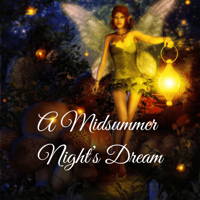When my cue comes, call me, and I will a...
Monologue Overview
Character
Gender
Male
Playing Age
Adult, Mature Adult
Style
Comedic
Act/Scene
Act 4, Scene 1
Time & Place
A wood outside of Athens
Length
Medium
Time Period
Classical
Show Type
Play
Age Guidance
Youth (Y)/General Audiences (G)
More Monologues
Context
<p dir="ltr"
to read the context for this monologue from A Midsummer Night’s Dream and to unlock other amazing theatre resources!Text
<span
to read the full text for this monologue from A Midsummer Night’s Dream and to unlock other amazing theatre resources!Videos
Related Learning Modules
All monologues are the property and copyright of their owners.
Monologues are presented on StageAgent for educational purposes only.
Auditions and jobs
near {{headerProps.location}}
Upcoming performances
Getting events near by you...
